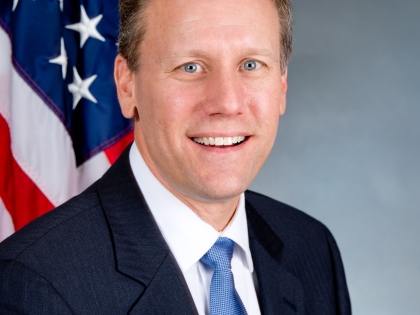
Valesky-sponsored new law will help communities fight future projects like NYRI
David J. Valesky
September 1, 2009
-
ISSUE:
- Energy
- Local Government
- Utilities
SYRACUSE, N.Y.—To help prevent projects like New York Regional Interconnect (NYRI) that could decimate Upstate communities against the will of local people, State Senator David J. Valesky (D-Oneida) and Assemblywoman RoAnn M. Destito (D/WF-Rome) sponsored legislation signed into law this week that will make financial resources available to communities to make their voices heard.
The legislation (S1599) resulted from the community outcry and subsequent defeat of the New York Regional Interconnect (NYRI) project in Oneida and Madison Counties.
“Though the communities in Central New York have been successful in defeating the NYRI project, we learned that it required substantial financial resources to do so.” Senator Valesky, Vice President Pro-Tempore of the Senate, said. “NYRI was a horrible idea from the start, and yet it was up to the impacted communities to fight against the plans of a multi-million dollar firm.”
“Citizens from the Mohawk Valley and other areas along the proposed route of NYRI were forced, using property taxpayer dollars, to fight against having a power line constructed through their communities which would have adversely affected the environment and hurt their property values without any beneficial impacts on local electric rates,” Assemblywoman RoAnn M. Destito (D/WF-Rome) said. "This new law by Senator Valesky and myself will provide some fairness to the process involving major electric transmission facility proposals by giving host communities the resources to intervene effectively so that their voices are fully heard.”
While Valesky, Destito and legislative colleagues worked together over the past few years with local communities to help fund the defeat of the NYRI-proposal, many involved in the anti-NYRI movement argued that a more predictable funding source needed to be established to defeat future proposals that could be equally detrimental to Upstate communities.
Under the new Valesky and Destito-sponsored law, revenues from application fees from each proposed project, up to $450,000, will be put in an account called an intervenor fund which is designated for municipalities and citizen groups for costs associated with expert witnesses, consultants, and administrative and legal fees.
In the past, the burden to raise funds to ensure communities and residents had a strong voice in the process fell to citizens and private sources
.
“This law will level the playing field and give residents a significant voice in energy policy decisions that affect their everyday lives,” Senator Valesky said.
##
Share this Article or Press Release
Newsroom
Go to NewsroomSenator Valesky to Hold Free Senior Fair on October 11 in Madison County
September 21, 2017
Sen. Valesky to Host Community Resources Fair at Boys and Girls Club
September 15, 2017
Donald R. Waful
May 15, 2017
